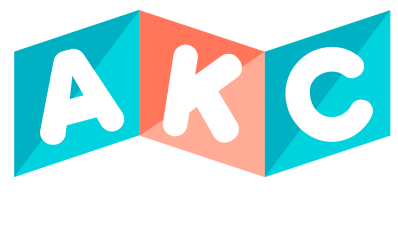As a parent, it’s your job to help your child resolve conflict and be a good friend. But let’s be honest, it’s not always easy.
Conflict can be emotionally draining for everyone involved. And knowing how to handle it properly is tricky. But with the right tools and techniques, you can help your child resolve conflict like a pro.
In this article, we’ll discuss some tips for helping your child handle conflict like a pro. We’ll also provide some resources that can help you further explore this topic.
What is Conflict and Why is it Important to Resolve it?
Conflict is a natural and essential part of life. When your child is faced with a disagreement, it’s essential to help them understand what’s happening and how to resolve the conflict positively.
Here are a few tips for helping your child resolve conflict like a pro:
- Encourage your child to listen to both sides of the story.
- Help them find common ground and compromise.
- Teach them how to problem solve and express their feelings calmly and effectively.
- Supporting them through the resolution process will help them feel confident and capable of handling future conflicts independently.
How Can Conflict Become Harmful?
So your child has learned how to handle conflict. That’s great! But now, you need to be aware of how conflict can become harmful.
If your child is constantly arguing and bickering with classmates, or if they’re always the one starting fights, that’s a sign that there’s a problem. And the problem isn’t just with your child. It’s also with the way they’re handling conflict.
When conflict becomes harmful, it can disrupt learning and damage relationships. It can also lead to aggression and violence. So it’s important to nip it in the bud early on before it has a chance to get out of control.
Read more: Everything You Need to Know About Anxiety
What are Some Strategies to Help Kids Resolve Conflict?
When resolving conflict, teaching your child some strategies to help them determine the situation calmly and respectfully is essential. Try these tips:
- Talk about what happened. Ask your child what led to the conflict, and help them understand what happened from their perspective. This will help them identify the issue and figure out how to fix it.
- Problem-solve together. Help your child come up with a plan to resolve the conflict. This could involve apologizing, compromising, or finding a way to make things right.
- Stay calm and positive. When things get tense, both parties need to stay calm and positive. This will help prevent the situation from getting out of hand and set the tone for a resolution.
What is Active Listening, and How Can it Help Resolve Conflict?
Getting kids to listen to anything you have to say can be challenging when they are in the heat of conflict. But active listening is a skill that can help them calm down and resolve the situation.
Active listening involves paying close attention to the other person, making eye contact, and not interrupting. You should also paraphrase what the other person has said to ensure you understand them correctly.
This process can help kids feel heard and understood, which is essential for resolving conflict.
How Can Parents Model Healthy Conflict Resolution?
As a parent, you want your child to be able to handle conflict healthily. But teaching them how to do this can be tricky. It’s not something that comes naturally to most kids, and it’s not something you can leave to chance.
So how can you help your child learn how to resolve conflict effectively? By setting a good example yourself. Show them how to listen to the other person’s point of view, compromise, and stay calm and rational.
And remember, it’s okay to make mistakes. Just be sure to apologize when you do and learn from your mistakes. Your child will follow your lead, so make sure you’re setting a good example.
Read more: All Your Need to Know About ADHD
What are Some Resources for Parents and Caregivers?
As a parent or caregiver, you want to do whatever you can to help your child handle conflict healthily. Fortunately, there are plenty of resources available to help you out.
Here are a few of our favorites:
- The National Center for Conflict Resolution offers resources for parents and educators, including a guide to help children resolve conflict peacefully.
- The American Psychological Association has a wealth of information on anger management and conflict resolution for children and adolescents.
- The Pacer Center offers a variety of resources for parents and educators, including a guide to cyberbullying prevention.
- UNICEF has a great guide on handling conflict with your children diplomatically.
- The Olweus Bullying Prevention Program offers information and resources for preventing and responding to bullying behavior in schools.
Conclusion
When it comes to resolving conflict, every child is different. However, some general tips and strategies can help your child handle conflict like a pro.
Above all else, it’s essential to encourage and model healthy communication habits. Please help your child understand their emotions and feelings and teach them how to express themselves respectfully and constructively.
In addition, teach your child about empathy and how to put themselves in other people’s shoes. This will help them be more understanding and forgiving when conflicts arise.
Finally, give your child some tools and strategies for resolving conflict. Offer practical advice on how they can negotiate and compromise with others and techniques for calming down during an argument. With these tools at their disposal, your child will be ready to handle any conflict that comes their way!





